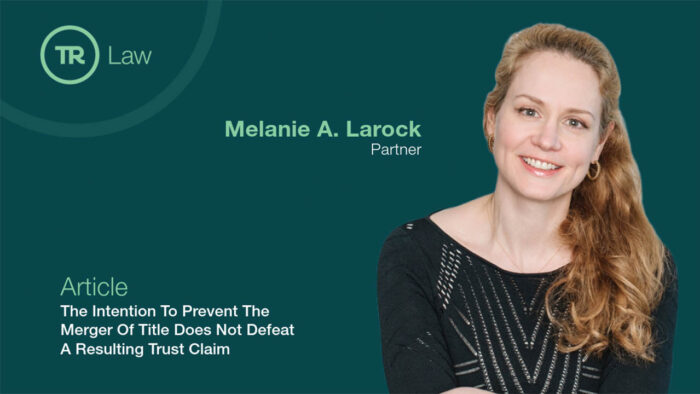Changes to the Unfair and Deceptive Acts and Practices Regulation
Author(s): David F. MacDonald
June 1, 2006
Section 439 of the Insurance Act prohibits unfair or deceptive acts or practices. The Act provides significant financial penalties for those who permit or commit an unfair or deceptive act or practice. The Unfair or Deceptive Acts or Practices regulation which came into effect in the year 2000 has been amended by Ontario Regulation 547/O5. The effect of the amendments are to significantly increase the definition of what constitutes an unfair or deceptive act or practice. A number of these newly defined unfair or deceptive acts or practices become effective March 1st, 2006.
The conduct of adjusters and service providers will face increased scrutiny as a result of these new definitions.
The relevant changes as they impact upon adjusters who are faced with the responsibility to agree or dispute Treatment Plans or other rehabilitation interventions are as follows:
- “For the purposes of the definition of ‘unfair or deceptive act or practice’ in section 438 of the Insurance Act, each of the following actions is prescribed as an unfair or deceptive act or practice:…
“9. Any conduct resulting in unreasonable delay in, or resistance to, the fair adjustment and settlement of claims.”
“13. Any examination or purported examination under oath that does not comply with the requirements under the Act or the regulations”.
5…each of the following actions, if done on or after March 1st, 2006, is prescribed as an unfair or deceptive act or practice in relation to a claim for statutory accident benefits… (the Schedule):
“1. The failure or the refusal of an insurer without reasonable cause to pay a claim for goods or services or for the cost of an assessment within the time prescribed for payment in the Schedule.”
“2. The determination by an insurer that a person is not entitled to a statutory accident benefit, or that a person does not have a catastrophic impairment if,
- the insurer makes the determination before obtaining a report of an examination in respect of the person under section 42 of the Schedule, and
- the Schedule does not authorize the insurer to make the determination without having obtained the report.”
“3. The making of a statement by or on behalf of an insurer for the purposes of an adjustment or settlement of a claim if the insurer knows or ought to know, that the statement misrepresents or unfairly presents the findings or conclusions of a person who conducted an examination under section 42 of the Schedule.”
“4. A requirement by an insurer that an insured person attend for an examination under section 42 of the Schedule conducted by a person whom the insurer knows or ought to know is not reasonably qualified by training or experience to conduct the examination.”
“5. A requirement by an insurer that an insured person attend for an examination under section 42 of the Schedule that the insurer knows or ought to know is not reasonably required for the purposes authorized under the Schedule.”
“6. The failure of an insurer to obtain the written and signed consent of an insured person in the approved form before a pre-claim examination under section 32.1 of the Schedule is conducted in respect of the insured person.”
By virtue of these new definitions, if an adjuster receives a Treatment Plan from a treating or proposed treating Health Care Professional and denies that Treatment Plan without a section 42 examination to indicate that the treatment is unreasonable, that adjuster has committed an unfair or deceptive act or practice under section 438 of the Insurance Act. (Section 5 . 2. of O. Reg.547/05)
If the adjuster receives a Treatment Plan, refers the Treatment Plan for consideration by a section 42 insurer examiner and the insurer examiner indicates that the treatment is reasonable, the adjuster may have committed an unfair or deceptive act or practice in unreasonably delaying or resisting the fair adjustment of the claim. (Section 1. 9. of O. Reg. 547/05)
If an adjuster receives a Treatment Plan and, after arranging a section 42 examination, denies the Treatment Plan in accordance with the findings of the section 42 examiner, treatment is delayed until the person’s lawyer obtains an arbitration decision confirming the reasonableness of the Treatment Plan. As the Treatment Plan has been found reasonable, the insurer may have committed an unfair or deceptive act or practice. (Section 1. 9. of O. Reg 547/05).
If an adjuster receives a submission of expenses by an insured or a request from a treatment provider to pay for the cost of an assessment, and fails to pay that amount within the time prescribed for payment by the SABS, if the expense is payable, the adjuster has committed an unfair or deceptive act or practice. (Section 5. 1. of O. Reg 547/05).
If a Section 42 examiner completes a Form 1 in a manner not in accordance with the requirements of the Form 1, the occupational therapist and the adjuster/insurer relying upon the Form 1, may have committed an unfair act or practice, (Section 1.9. and 1. 13 of O. Reg 547/05)
PENALTIES:
Section 439 of the Insurance Act states:
“Prohibition – no person shall engage in any unfair or deceptive act or practice”.
The Superintendent of Insurance has powers to examine and investigate, in order to determine whether a person has been, or is, engaged in any unfair or deceptive act or practice, pursuant to Section 440.
After investigating, the Superintendent shall report if an unfair or deceptive act or practice has occurred and can order the person to stop the unfair act or practice. The Superintendent also has the power to order the person to cease in engaging in the business of insurance or any aspect of the business of insurance. As well, the Superintendent may order the person to perform the acts that are necessary to remedy the situation.
Under section 447 (2) every person is guilty of an offence who contravenes this Act or the regulations. Section 447 (3) prescribes a penalty on conviction of an offence under the Act. On a first conviction the person convicted is liable to a fine of not more than $100,000.00 and on each subsequent conviction to a fine of not more that $200,000.00.
Further, every director, officer and chief agent, of a corporation, who caused or permitted an offence or failed to take reasonable care to prevent the corporation from committing an offence, is liable on first conviction to a fine of not more than $100,000.00, and on each subsequent conviction, a fine of not more than $200,000.00, whether or not the corporation has been prosecuted for or convicted of the offence. Where a person is convicted of an offence under the Act, the court making the conviction may, in addition to any other penalty, order the person convicted to make compensation or restitution in relation to the offence.
Persons who wish to report an unfair or deceptive act or practice may do so by writing to the Registrar of Unfair and Deceptive Acts and Practices at the Financial Services Commission of Ontario to the attention of Sirak Sahle, Registrar, 5160 Yonge Street, P.O. Box 85, Toronto, Ontario, M2N 6L9 or by telephone (direct) 416-590-7058, fax 416-590-8480.
Share this








